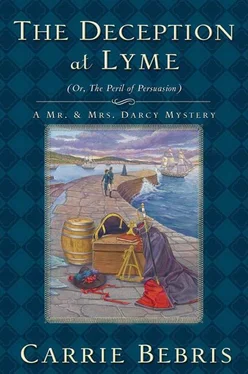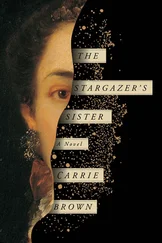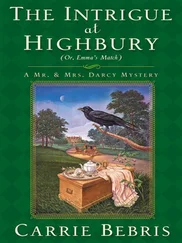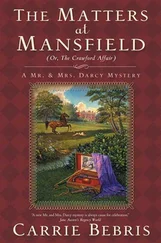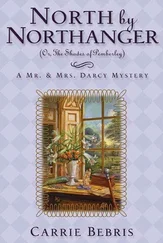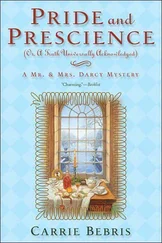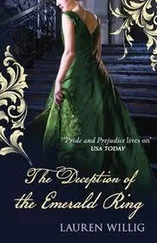“What was the subject of their argument?”
“Infidelity—on the part of both parties. She was accusing him of continuing affairs he had told her were ended, and of having come to Lyme to rendezvous with his lovers. He responded that she was also guilty of unfaithfulness, but that she was hardly enticing in her present condition.”
“That sounds like it could be they.”
“Then she brought up a promise he had made to her, told him he had run out of time, and departed—I expect, for Sir Walter’s.”
“Where she got married, thwarting Mr. Elliot’s expectations of inheriting Sir Walter’s title,” Darcy finished. They resumed walking. “This other affair you mentioned, between Mrs. Clay’s and Mr. Elliot’s spouses—the couples knew each other for some time, then?”
“Yes, intimately.”
“I should say so.”
“Darcy!” She glanced round, but there was nobody nearby to hear them. “What I meant was that they, along with the Smiths, were particular friends. Though what happened after the affair was exposed, I did not learn.”
“How was it exposed?”
“Let us simply say that Mr. Clay was carried away by his passion for Mrs. Elliot.”
He stopped again, searching her face to make sure he had correctly interpreted her meaning. “Mr. Clay died in the act of cuckolding Mr. Elliot?”
She nodded.
Darcy’s gaze drifted past her, beyond the edge of the upper Cobb, to the pavement below. Without her realizing it, they had reached the section of the seawall where Mrs. Clay had fallen. “And Mrs. Clay died within hours of leaving Mr. Elliot for Sir Walter.”
The chill that passed over Elizabeth had nothing to do with the breeze coming off the sea.
“How did Mrs. Elliot die?” Darcy asked.
“Mrs. Smith did not say—our conversation was interrupted.”
“I think we need to find out.”
“As to his marriage, I knew all about it at the time. I was privy to all the fors and againsts; I was the friend to whom he confided his hopes and plans; and though I did not know his wife previously … I knew her all her life afterwards, or at least till within the last two years of her life.… He was very unkind to his first wife. They were wretched together.”
—
Mrs. Smith, speaking of Mr. Elliot, Persuasion
The Wentworths lived in a charming two-story house high up the cliff on Pound Street, a dwelling they had taken for six months while they decided where they wanted to settle permanently now that the end of the war had cast the captain ashore. From the exterior, it looked everything a newlywed couple could want in their first home: a neat façade with bay windows and fresh paint, a garden blooming with more flowers than many twice its size, and a door that was always open to friends.
The Wentworths’ housekeeper showed the Darcys into a well-proportioned sitting room when they called to deliver the small blanket Elizabeth had embroidered. A day of rain following the christening had enabled Elizabeth to complete the needlework while Darcy wrote a detailed reply to a letter he had received from Pemberley’s steward and caught up on other correspondence. Georgiana had spent most of the afternoon at the Ashfords’ house; Sir Laurence had left Lyme for a few days on business, and Miss Ashford preferred the company of a friend her own age to that of her middle-aged paid companion.
Mrs. Wentworth welcomed them warmly and received the gift with appreciation, confessing that she had begun a similar project but had not advanced at all since bringing Alfred to live with them. She appeared tired, but in a happy sort of way. The captain, too, looked more fatigued around his eyes than when they had last seen him, though Elizabeth imagined that his profession had probably accustomed him to disrupted sleep. The young culprit was at present upstairs with Mrs. Logan in the hastily established nursery.
“I am finding that I would rather hold Alfred than a needle,” Mrs. Wentworth said.
Elizabeth thought of Lily-Anne, back at their cottage with her nurse. She would still rather spend time with her daughter than in sewing. “One cannot fault you for that,” she said to Mrs. Wentworth.
“Mrs. Smith, however, has been employing her own to Alfred’s benefit—as you can see.”
The good woman indeed had needles in hand as she sat beside a table where her work box was laid out. Hers, however, were knitting needles. Her fingers rapidly performed their movements, giving form to what appeared to be the start of a small cap. “I have never made anything for an infant before,” she said. “Most of my work has been little thread cases and pincushions, which I sell to support myself. I have not long known how to knit—Nurse Rooke taught me, to help strengthen my hands as I recover—but I am happy for the opportunity to apply my skills, such as they are, to something for Alfred.”
If Elizabeth had previously harbored any doubt about the amount of affection Alfred would receive in the Wentworths’ home, she now believed beyond question that the little boy would enjoy at least as much attention as he would have known if his own mother had lived—probably a great deal more, judging from the unflattering accounts of Mrs. Clay that Elizabeth had heard at the christening.
Elizabeth enquired after Alfred—his habits, his preferences, his temperament, all the small particulars in which mothers take interest, especially new mothers, who are always quite certain that no baby in the history of babies has ever gurgled, mewed, yawned, blinked, stretched, sneezed, or hiccupped in quite the manner theirs does. Mrs. Wentworth was able to retain some impartiality when it came to Alfred, but one could hear in her voice that her affections were most decidedly engaged. She delighted in the opportunity to discuss such minutiae with Elizabeth, whose conversation was grounded in more experience than Mrs. Smith or even Mrs. Logan were able to provide. The two were soon talking like friends of much longer acquaintance, the timeless experience of motherhood reinforcing their newer connexion.
Darcy was bored nearly to the limit of endurance.
He was a devoted father, and more engaged in Lily-Anne’s day-to-day existence than were most gentlemen with nursery-aged offspring. But with rare exceptions, his interest in discussing children began and ended in conversations with his wife, with his own daughter as the subject. Though the manner in which he attended the dialogue between Elizabeth and Mrs. Wentworth was all that courtesy demanded, Elizabeth knew him well enough to recognize each slight shift in his seat as evidence of much greater restlessness.
Captain Wentworth exhibited similar behavior. Indeed, he seemed even more restless than Darcy. After a polite interval had passed, one gentleman’s gaze happened to drift toward the other’s, and she saw in the slight curl of Wentworth’s mouth and the responding spark in Darcy’s eyes their identification of a kindred soul yearning to talk about hunting, or politics, or guns, or swords, or brandy, or horses, or dogs—or anything, really, other than the present topic of discourse. The weather would suffice.
The entrance of a servant who needed to consult Captain Wentworth’s preference regarding a repair to some item of furniture in his study led to the rapid determination that the captain had better view the article himself before deciding. It was additionally determined that Darcy’s opinion might also prove useful, and that he should accompany Captain Wentworth. They made good their escape, eliciting a laugh from Mrs. Smith once they had quit the room.
“My husband would have fled along with them, though I doubt he ever repaired a thing in his life.” She laughed again. “But then, people can have all sorts of opinions about things they have never done themselves. Especially men. They must believe that however little they know, their judgment should matter. Mr. Elliot is a prime example of that.”
Читать дальше
